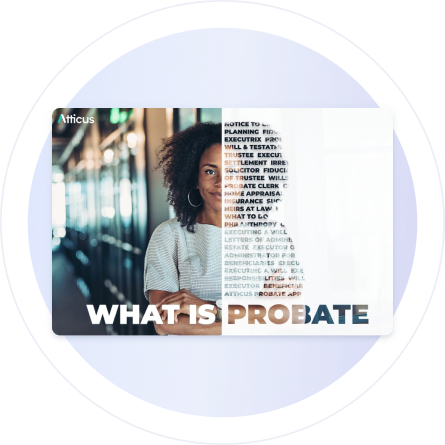Trying to find the right Probate forms? We’ve got you covered.
Start by searching for a form, choosing a location, or both:




Check out some of our most popular forms
Browse forms by state or province
United States of America

Looking for probate and estate settlement guidance?
Most people don’t realize that probate processes & rules vary from state to state, sometimes even county to county. Click below to view the Atticus Beginner's Guide to Probate.
Feeling overwhelmed? Check out our comprehensive guides to probate and estate settlement
Atticus Expert GuideCheck out the list
What to do when someone dies - the 2025 checklist
Not sure where to start? We break down this complicated process into easy to follow steps

Recommended ReadCheck out the guide
The beginner's guide to Probate
Learn what it is, the terms, and what the next few months will look like. We cover everything from qualifying to inventorying and closing.

Recommended ReadLearn how to succeed
Executors of an estate —what they do & secrets to succeeding
Being an executor involves a whole host of responsibilities that take an average of 500 hours and often last well over a year.

Check out these helpful resources to get a jump start on Probate and Estate Settlement
Join us at
#weareatticus
